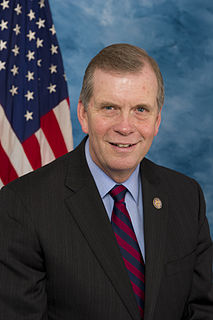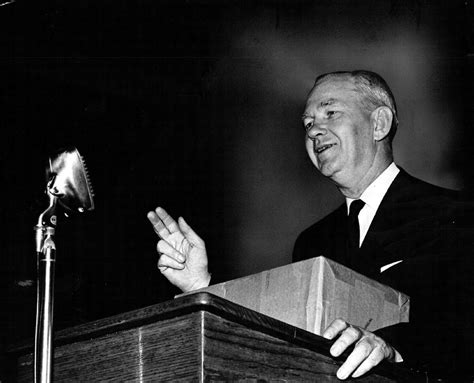A Quote by Thomas More
Laws could be passed to keep the leader of a government from getting too much power.
Related Quotes
In a government framed for durable liberty, not less regard must be paid to giving the magistrate a proper degree of authority, to make and execute the laws with rigour, than to guarding against encroachments upon the rights of the community. As too much power leads to despotism, too little leads to anarchy, and both eventually to the ruin of the people.
Government is not a solution to our problem, government is the problem. ... Government does not solve problems; it subsidizes them. Government's view of the economy could be summed up in a few short phrases: If it moves, tax it. If it keeps moving, regulate it. If it stops moving, subsidize it. ... The problem is not that people are taxed too little, the problem is that government spends too much.
Laws, it is said, are for the protection of the people. It's unfortunate that there are no statistics on the number of lives that are clobbered yearly as a result of laws: outmoded laws; laws that found their way onto the books as a result of ignorance, hysteria or political haymaking; antilife laws; biased laws; laws that pretend that reality is fixed and nature is definable; laws that deny people the right to refuse protection. A survey such as that could keep a dozen dull sociologists out of mischief for months.
The establishment of our new Government seemed to be the last great experiment for promoting human happiness by reasonable compact in civil society. It was to be, in the first instance, in a considerable degree a government of accommodation as well as a government of Laws. Much was to be done by prudence, much by conciliation, much by firmness.
You can have very big local government. By big, I mean very engaged government. Do you measure it in terms of the number of laws? Number of employees? You could make arguments for either one. I tend to think the axis of the size of government is the wrong concern. But I do think that situating power more locally is a legitimate approach.
I was very, very concerned about President Obama and how much executive order and how much executive power he tried to exert. But I think I want to be, and I think congress will be, a check on any executive, Republican or Democrat, that tries to grasp too much power. And really, a lot of the fault is not only presidents trying to take too much power, it's Congress giving up too much power.
If we could suppose a great multitude of men to consent to the observation of justice, and other laws of Nature, without a common Power to keep them all in awe; we might as well suppose all mankind to do the same; and then there neither would be nor need to be any civil government or commonwealth at all, because there would be Peace without subjection.



































